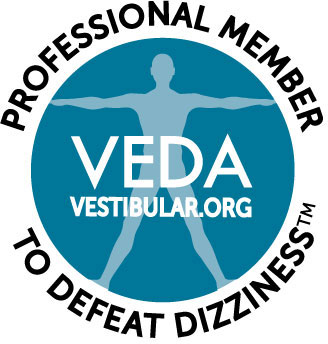Have you or a loved one experienced visual vertigo and panicked, not knowing what to do? Visual vertigo is a phenomenon that happens when too much visual stimulation triggers dizziness.

Visual vertigo can be tied to binocular vision dysfunction. It is most commonly experienced when driving in a car with a lot of stimulation on the side. You may feel dizzy, and then anxious and uncomfortable as you feel a loss of control and perspective in your environment.
Sensory Visual Vertigo Stems from the Eyes
A person with visual vertigo often experiences disturbances related to visual motion, computer screens, photosensitivity and optic flow. Sensory visual vertigo, or a feeling of swaying or motion, happens due to unsteadiness in the eyes.
The eyes do not recognize visual stimuli properly. This leads to eye strain as the eye muscles contract, as the person aims to see better. This eye strain, in turn, leads to intense migraine-like headaches.
What Happens When You Have Binocular Vision Dysfunction
When your eyes are in alignment and working properly together in cohesion as a unified visual system, both your left and right eyes converge onto an object. Each eye sends an image to the brain that is only slightly different. The brain quickly combines these two images into one unified image. This ability is called binocular vision.
Binocular vision dysfunction, or BVD, occurs when your eyes do not align properly. The eye muscles strain as they attempt to overcome blurry vision, double vision and any other effects. This intense muscle strain leads to dizziness, disorientation, headaches and general discomfort.
Difficulties with Learning & Reading
When you have misaligned eyes, you may struggle to learn and read because you constantly feel tired, words blend together when you read and you often skip your place while reading. You may find it hard to concentrate and even see words moving on the page. The misalignment can be very small but still lead to these effects and discomfort. As many as 50% of children that are diagnosed with ADHD may be affected by binocular vision dysfunction. It thus becomes critical that you or your loved ones are properly diagnosed with specific tests that detect small, subtle misalignments.
At the Neuro Visual Center of New York, we offer specialized testing to check for binocular vision dysfunction. Our principal, Dr. Cheryl Israeloff, works with patients of all ages who have suffered from such symptoms and often have not gotten a proper diagnosis or treatment.
Contact Us Today
If you suffer from symptoms of binocular vision dysfunction such as headaches and dizziness, give us a call. You can get eye strain treatment after a specialized eye exam at our center. Call the Neuro Visual Center of New York today at (516) 224-4888. You can also fill out our questionnaire online. Let us help you.






Hello I am from India…I have similar symptoms..I need help with my condition..can I have a treatment without visiting New York..is there a possibility..??
I am sorry. This is not something that can be treated remotely.